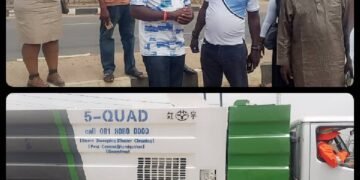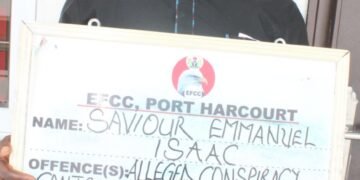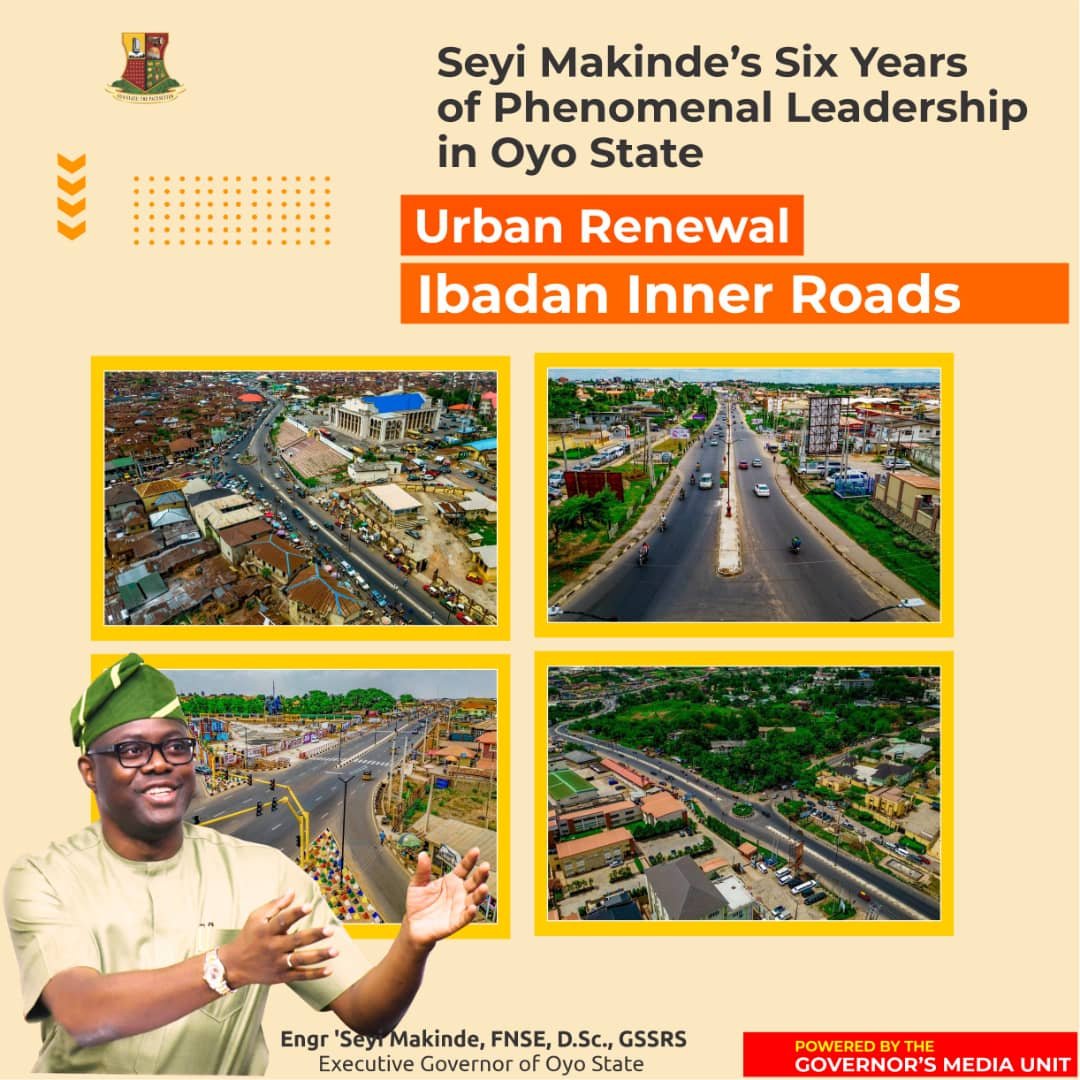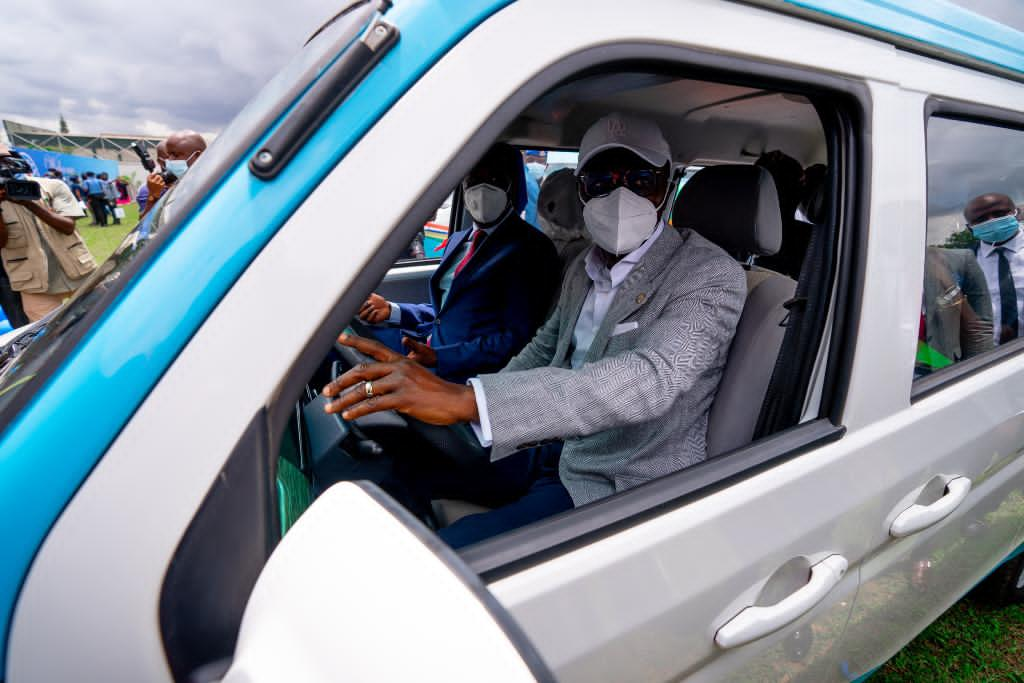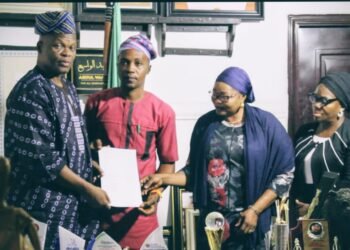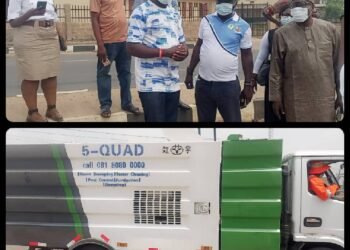In a bid to provide means of transportation to residents as alternatives on routes restricted to commercial motorcycles, Lagos State governor, Mr. Babajide Sanwo-Olu, on Tuesday, May 18, 2021, unveiled a new transport scheme.
This was sequel to the last opportunity given to motorcycle riders to act in consonance with traffic laws or be banned from operating on Lagos roads, while those who drive against the traffic repeatedly would go to jail for three years.
The governor launched 500 units of First and Last Mile (FLM) buses, which would be deployed to communities as alternative means of transportation in addressing the security threat constituted by commercial motorcycles, popularly known as okada.
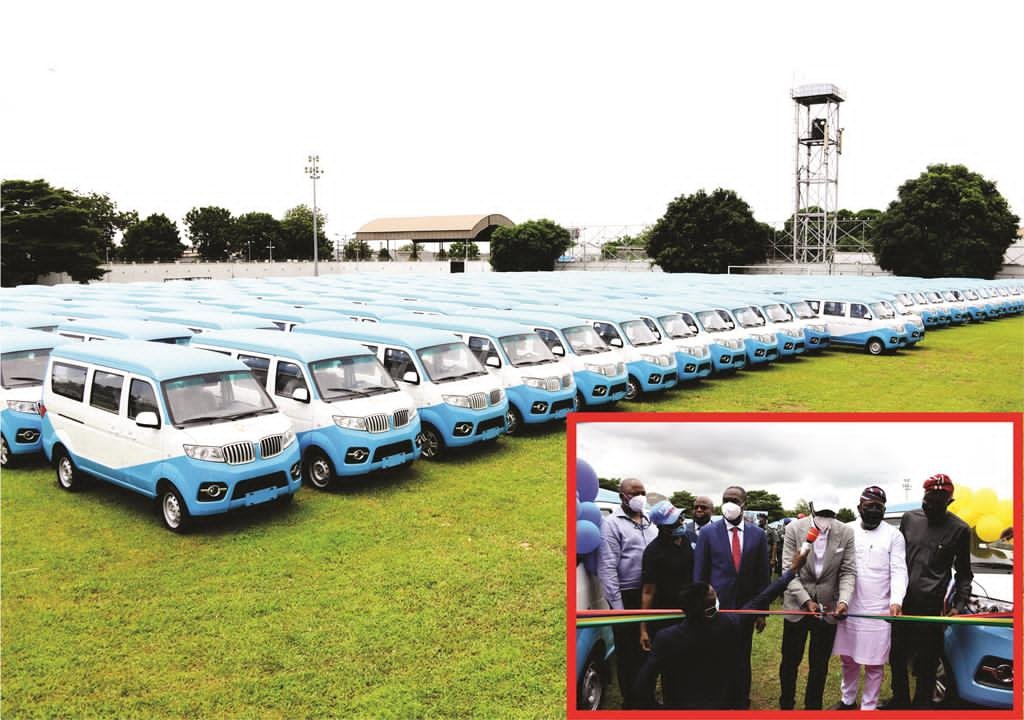
The FLM vehicles, assembled locally, are mini-passenger buses (between seven and 11-seater), which would operate on 286 community routes. They would be taking passengers from closest points to their areas of residence to standard transportation corridors.
Payment for FLM services would be made through an automated payment system, using Cowry Travel Cards. Cowry Travel Card holders who use them on BRT buses and standard route buses could use their cards on FLM buses.
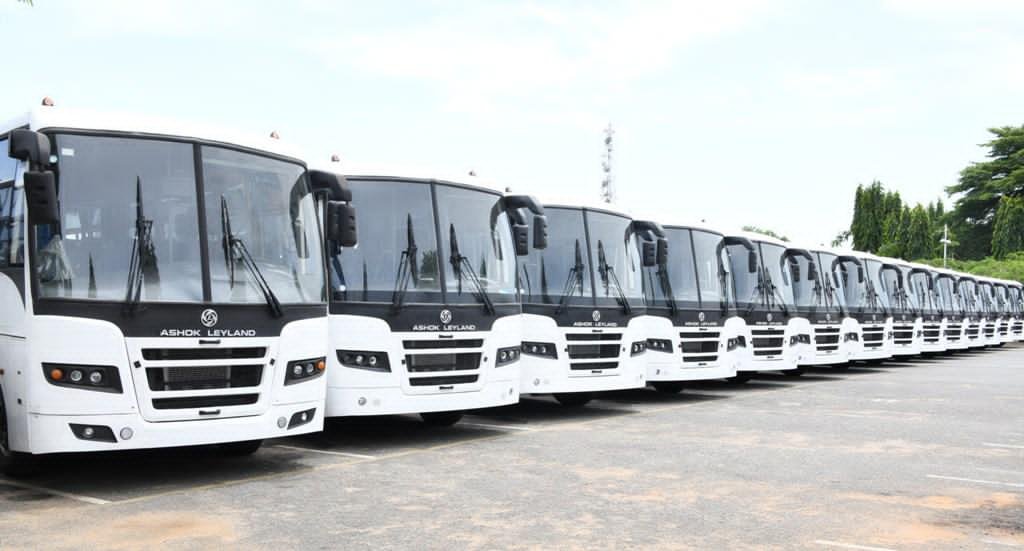
For ease of operation of the scheme, the State Government delineated the FLM’s corridors into eight zones, comprising Ikeja and Ketu (Zone 1), Oshodi, Mushin, and Surulere (Zone 2), Berger, Yaba and Oyingbo (Zone 3) and Lagos Island, Ajah and Ibeju Lekki (Zone 4).
Others are Iyana-ipaja and Agege (Zone 5), Mile 2, Iyana-Iba and Ajeromi (Zone 6), Ikorodu (Zone 7) and Epe and Badagry (Zone 8).
The governor also inaugurated brand-new 100 high and medium-capacity buses into the fleet of Lagos Bus Service Limited (LBSL), to replace vehicles burnt at BRT stations during EndSARS protests in October 2020.
In his address at the launching, the state governor, Sanwo-Olu said that the administration was aware of the role transportation
plays in the development of any economy, hence the steps taken to birth and bequeath to the state enduring transport infrastructure and systems, which future generations
would be proud of.

According to him, “our Bus Reform Initiative (BRI) is an ambitious road transportation
effort that encompasses a number of transport projects, including
the construction of bus terminals and interchanges.
“There are bus terminal projects in different stages of completion at Agege, Ojota, Ajah, and the NAHCO area of the Murtala Mohammed International Airport.
“We shall soon commence the
construction of two transport interchanges at Mile 2 and Marina.
These interchanges will serve as interconnecting hubs for commuters whose journeys require more than one mode of
transport to get to their destinations.
“Closely affiliated to the Bus Reform Initiative are our robust rail and
water travel transportation projects which are also gathering pace.
As regards our waterways, I am pleased to note that we are getting
set to commission six new ferries into our operational fleet; in addition to being at advanced stages in the construction and
rehabilitation of 15 jetties across the State.
“Equally noteworthy is the fact that two of our Intra-City Light Rail Lines will become operational by the fourth quarter of 2022.”
He described the fleet of brand-new mini buses being launched as “the newest component of our transformational Bus Reform Initiative,
and also known as the ‘First and Last Mile Bus Scheme’ (FLM).”
Sanwo-Olu said that the FLM was conceived to take care of
commuting between the main transit corridors and the hearts of communities, where the bulk of people reside, and where the high capacity buses would normally not pass through.
Sanwo-Olu said the mini buses would address okada-related crises that had generated widespread concern on safety among residents. Besides, they would offer services which the high-capacity buses were not designed for.
The first fleet of buses would kick off the operation of the scheme, while the fleet would be gradually increased to 5,000 buses in the coming months, the governor said.




